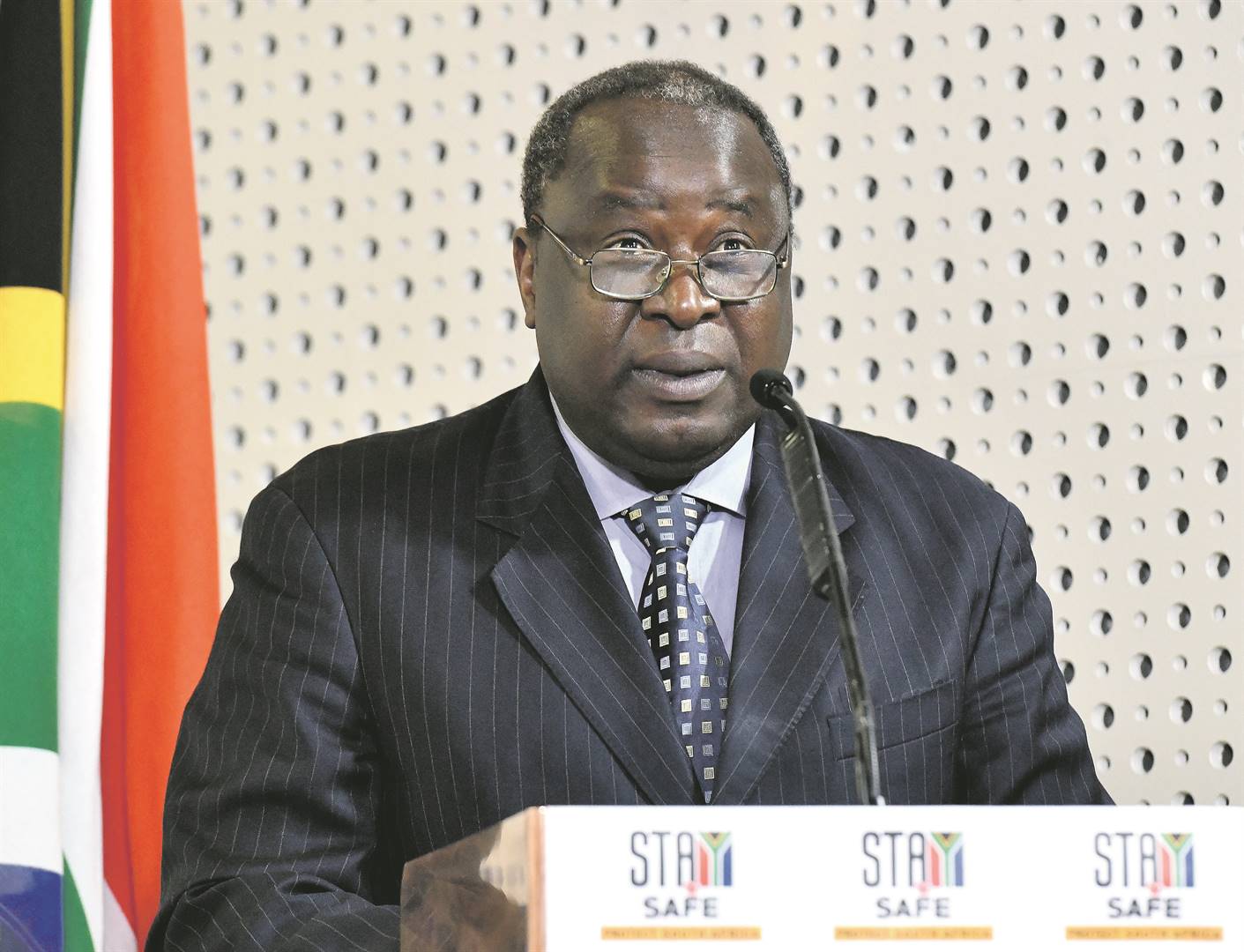
Finance Minister Tito Mboweni has described as “painful” the decisions by international ratings agencies – Moody’s Investors Service and Fitch Ratings Agency – to further downgrade South Africa’s credit ratings into junk status.
In a statement released by the National Treasury on Saturday, Mboweni said the downgrade would not only have immediate implications for South Africa’s borrowing costs but it would also constrain the country’s fiscal framework.
Moody’s and Fitch downgraded South Africa’s credit ratings further into junk status on Friday. The two credit rating agencies said the Covid-19 pandemic intensified South Africa’s fiscal challenges and exacerbated the upward trend in the country’s government debt burden.
The agencies noted that the pandemic hit after South Africa was already in a recession following two quarters of negative economic growth.
As a result, Moody’s cut South Africa’s foreign and local currency ratings to Ba2, two levels below investment grade, from Ba1. Fitch followed suit, cutting the country’s foreign and local currency ratings to BB-, three levels below investment grade, from BB.
Both agencies emphasised that the downgrades also come with a negative outlook.
According to a statement by Moody’s, the key driver behind the rating downgrade to Ba2 was the further expected weakening in South Africa’s fiscal strength over the medium-term.
The rating agency said, whereas the rating action earlier this year reflected an erosion in the country’s credit profile, Friday’s action reflected the rating agency’s assessment of the impact of the pandemic shock, both directly on the debt burden and indirectly by intensifying the country’s economic challenges and the social obstacles to reforms.
“While South Africa is not alone in having been severely affected by the crisis, its capacity to mitigate the shock over the medium-term is lower than that of many sovereigns given significant fiscal, economic and social constraints and rising borrowing costs,” said Moody’s.
The agency added that government’s rested on structural reforms to promote medium-term growth as well as on fiscal consolidation. However, while the strategy remained in place, implementation risks had risen materially.
Fitch’s downgrade and negative outlook also reflected high and rising government debt, exacerbated by the economic shock triggered by the Covid-19 pandemic
Fitch said South Africa’s economic growth performance and GDP are expected to remain below last year’s levels until 2022.
Read: Reserve Bank keeps repo rate unchanged, again, at 3.5%
It said that the particularly tight lockdown in the second quarter, combined with the broader global and domestic fall-out of the pandemic, led to a sharp fall in output.
Fitch said while it recognised that South Africa’s economic recovery would improve after the easing of the lockdown during the third quarter, it still expected GDP to contract by 7.3% this year.
“Due to base effects, growth will surge to 4.8% next year but then slow to 2.5% in 2022.
“We believe that trend growth will remain around 1.5%, and there are risks that lasting effects of the pandemic could further weigh on trend growth. Investment spending had already weakened in recent years, falling last year to the lowest level in real terms since 2012, reflecting challenges to the business environment such as the poor reliability of power supply, labour market inflexibility and subdued domestic demand prospects,” said Fitch.
Unlike Moody’s and Fitch, S&P Global Ratings affirmed South Africa’s long-term foreign and local currency debt ratings at BB- and BB, respectively. S&P maintained a stable outlook for the country. The agency said even though the lockdowns associated with combating the Covid-19 pandemic plunged South Africa into its sharpest quarterly economic contraction in the second quarter of this year, leading to a large widening of the fiscal deficit and rapidly rising government debt, “nevertheless, there are indications that the economy is beginning to rebound in the third quarter”.
In response to the country’s credit rating downgrades, Mboweni said there was an urgent need for government and its social partners to work together to ensure South Africa kept the sanctity of the fiscal framework and implement the much-needed structural economic reforms to avoid further harm to the country’s sovereign rating.
City Press has previously reported that the Covid-19 pandemic shock hit South Africa at a difficult time. Economic growth has continued to decline irrespective of the attempts to reduce structural constraints.
The financial strain on government was a result of the pandemic, weak economic growth, the high public sector wage bill as well as continuous support state-owned enterprises.
Mboweni said: “Currently, government has accumulated debt stock of nearly R4 trillion and spends about R226 billion on interest costs. The continuous support to the financially weak state-owned companies have weakened public finances and led to government accumulating debt.”
The minister said the recent downgrades saw South Africa reach its lowest credit rating levels from the “big three” rating agencies since 1994. He added that continuous rating downgrades would translate into unaffordable debt costs, deteriorating asset values such as retirement, other savings and property and reduction in disposable income for many.
“If the cost of borrowing money for government increases, it means that government will have to either cut back on social spending or tax more the few people that are employed, which is bad for the country.
“Further downgrades will extend the impact of the lockdown restrictions.
“These restrictions led to many workers being laid off since companies were temporarily closing doors and cutting back on operational costs. Without any disposable income and increasing costs of goods, it will be difficult to maintain the standard of living,” said Mboweni.
| ||||||||||||||||||||||||||||||
 |




 Publications
Publications
 Partners
Partners










